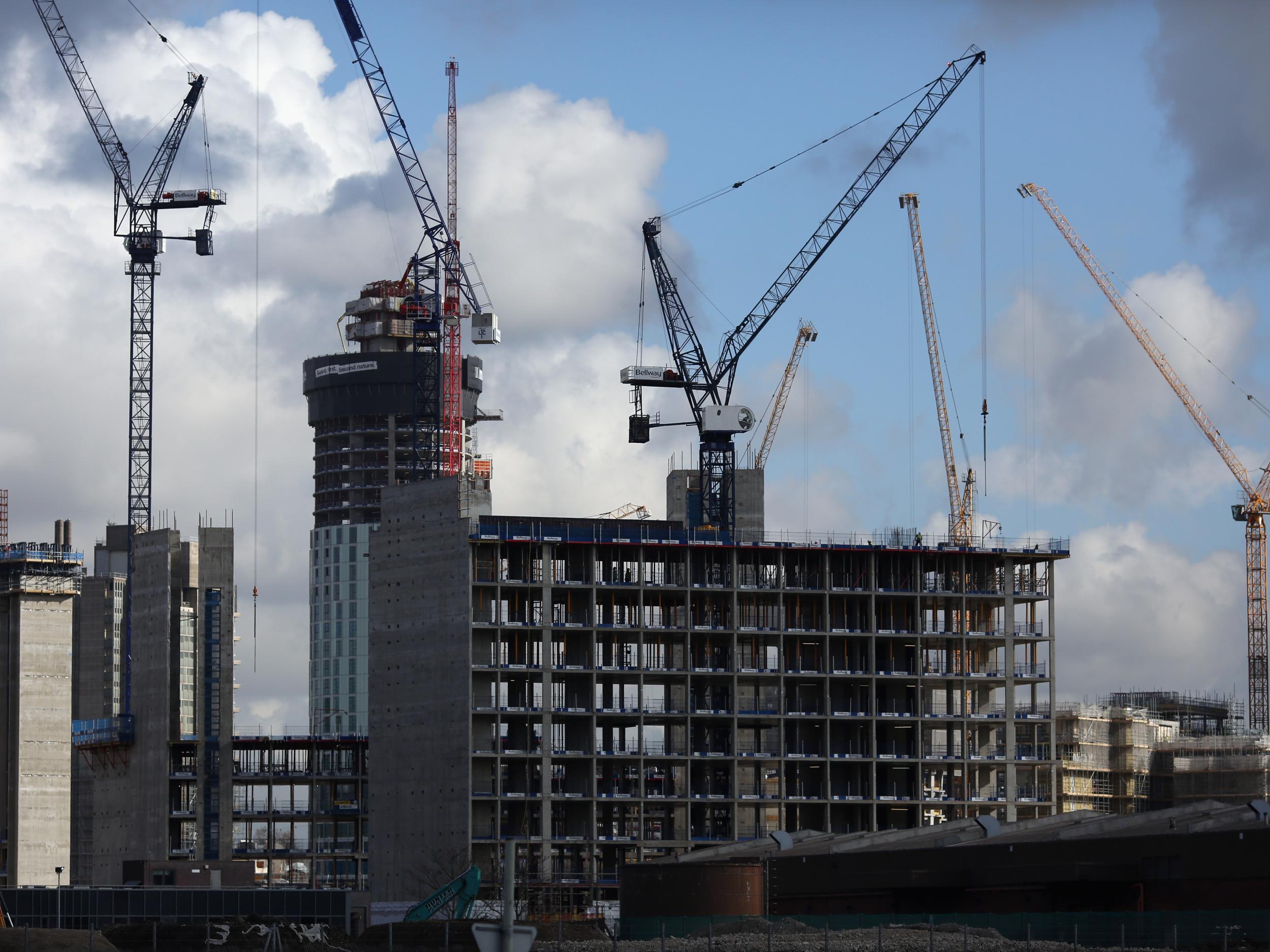UK builders' confidence falls to seven-month low in May, latest survey shows
New orders also fell for fourth time in five months according to May purchasing managers’ index

Britain’s builders remained under the cosh in May with business confidence slipping and new orders falling again.
The latest purchasing managers’ index (PMI) came in at 52.5, unchanged from April, which was itself only a disappointing bounceback from the sector’s snow-related slump into contraction in March.
Business confidence was its weakest since November 2017, which firms attributed to political and economic uncertainty.
New orders fell for the fourth time in five months.
Firms also reported inflationary pressures, with input price costs rising at the steepest rate since February.
While commercial building activity increased in the month, this was offset by slowdowns for house building and civil engineering.
Construction accounts for around 6 per cent of UK GDP.
The Office for National Statistics estimates that the sector’s output slumped by 2.7 per cent in the first quarter of 2018.
“It’s likely that the construction sector’s performance will be a slow and steady crawl through the second quarter, as the spectre of Brexit continues to dominate, and the double pincer movement of few orders, and higher costs, could see the sector stutter further,” said Duncan Brock of the Chartered Institute of Procurement and Supply.
Weak bounceback
“There remains a tremendous amount of uncertainty in the sector, exacerbated by extended material lead times which are increasing costs and delaying the build programme,” said Phil Harris of BLP Insurance.
“Although May was a stronger month for commercial activity, the sector remains prone to being buffeted by the political outlook because it lacks the domestic growth pressure prevalent in the housing market. Office space demand in London is declining, retailers continue to hit the headlines with store closures, and while hotels and leisure are proving resilient, overall the sector is not booming.”
The overall economy is judged to have grown by 0.1 per cent in the first quarter, the feeblest growth rate in more than five years.
The Office for National Statistics has argued that the snowstorms of February and March are only partly to blame, but the Bank of England has said it thinks the weather was the primary driver of the slowdown and that overall GDP growth will recover to 0.4 per cent in the second quarter.
Evidence from the much-watched PMI surveys, which are compiled by IHS Markit, has been mixed.
The bounceback from March’s slump for construction and services has been meagre and the implied level of activity for manufacturing remains well down on its rate in the second half of 2017.
The services PMI for May will be released on Tuesday.
Subscribe to Independent Premium to bookmark this article
Want to bookmark your favourite articles and stories to read or reference later? Start your Independent Premium subscription today.

Join our commenting forum
Join thought-provoking conversations, follow other Independent readers and see their replies